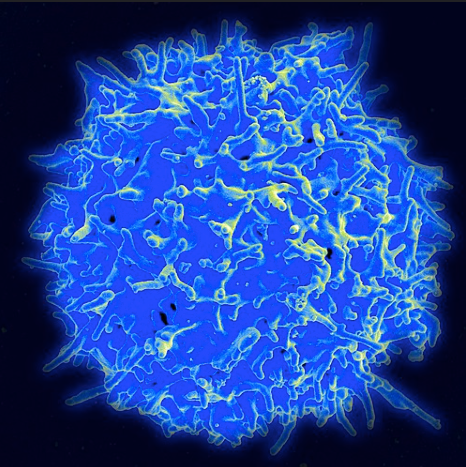World's First "Off-the-Shelf" T-cell Immunotherapy
- Lin Tseng
- Feb 15, 2024
- 3 min read
Updated: Feb 16, 2024

The world’s first “off-the-shelf” T-cell immunotherapy from Atara Biotherapeutics (EBVALLO™) has been approved by the European Committee! Their phase 3 clinical trial showed excellent clinical data that allowed the approval of the drug. This drug is approved as a monotherapy for refractory or relapsed Epstein-Barr-Virus Positive Post-Transplant Lymphoproliferative Disorder who have failed previous therapies such as rituximab and chemotherapy.
Some of the key points from the Phase 3 Clinical Trials were:
1. Met primary endpoint with 22 of 43 EBV+ PTLD achieving a 51.2% ORR.
2. Estimated one-year overall survival was 84.4% for responders vs 34.8% for non-responders.
3. Median duration was 23 months and medium overall survival was 18.4 months.
4. Safety profile was well tolerated with no reports of tumor flare reactions, cytokine release syndrome, or neurotoxicity syndrome. There were also no graft vs host disease or solid organ rejection reported.
We first have to understand what is Epstein-Barr-Virus or EBV. This DNA virus is commonly associated with the term "mono" or infectious mononucleosis, which is the popular name we often hear. The treatment is generally supportive care. 95% of adults over 40 years old are infected with EBV, however our body is able to fight against them. EBV invade our B-cells and then replicate themselves inside. They can stay dormant inside our B-cells (latent phase) and can be reactivated at a later time by various triggers. One of the side effects of post-transplant, either solid organ or hematopoietic stem cell, is the reactivation of EBV that causes uncontrolled lymphoid proliferation (post-transplant lymphoproliferative disorder). Dr Susan Prockop, the lead investigator of the Phase 3 clinical trial at Boston’s Children’s Hospital - Dana Farber Cancer Institute stated that “Patients with relapsed or refractory EBV+ PTLD have limited treatment options and poor overall survival measured in only weeks to months.”
How does their technology work?
Since most of adults over 40 years old are infected with EBV, our bodies have the natural immunity to defend against the virus, leaving us with a special population of T-cells. These T-cells are primed against the virus, making it easier for our immune system to destroy them if we were to encounter them again. For infected adults with weakened immune system, they are vulnerable to developing EBV-driven cancers.
Atara has a manufacturing process that enrich donor-derived T-cells, allogeneic, for specific receptors that target EBV-infected cells. Immune cells are collected from healthy donors and enriching them for EBV T-cells through their proprietary manufacturing and production processes through stimulation with various EBV antigens. They are able to produce mass quantity of polyclonal EBV+ T-cells from a single donor. One important keynote is that these T-cells are unedited, meaning that they have not undergo any gene editing or modifications. The goal of unedited therapy is to harness the power of our natural immune cells to attack tumor cells.
Why is this important?
As the first unedited T-cell immunotherapy to receive approval, EBVALLO™ represents a new approach to harnessing the body's natural immune response to fight cancer. Unlike traditional therapies that involve genetic modifications, this unedited therapy utilizes the inherent power of T cells without altering their genetic makeup. This approach offers several benefits, including a wider range of targets and reduced risk of unintended side effects. By tapping into the body's own immune system, EBVALLO™ opens up new possibilities for personalized and effective treatments for cancer patients, promising better outcomes and improved quality of life.
*I am not affiliated with or a representative of Atara Biotherapeutics, nor do I conduct or represent clinical trials. This blog is an independent platform dedicated to providing information and insights on various aspects of the pharmaceutical and biotech industry, healthcare, and scientific advancements.*

Comments